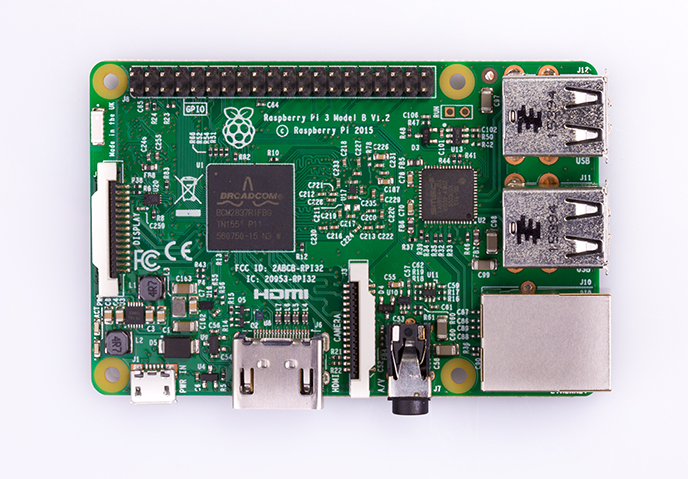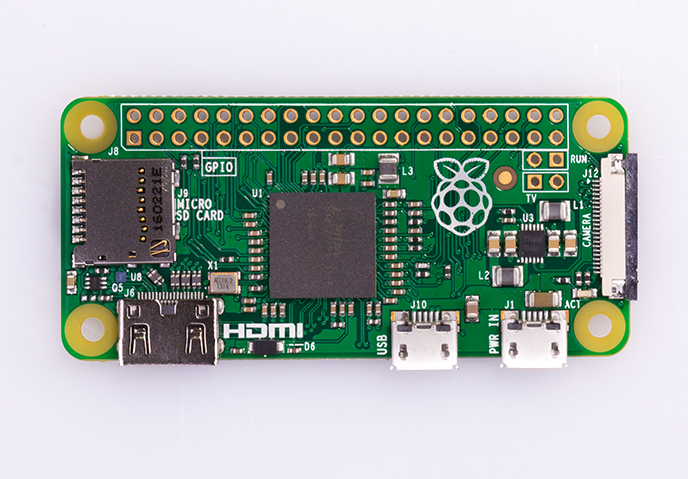As mentioned previously, Raspberry Pi Zero W is a new member of the Raspberry Pi family of boards. Throughout the years, Raspberry Pi has been evolving and has become more user-friendly with endless possibilities. Let's have a look at the rest of the family, so we can understand how the Pi Zero board is different.
Right now, the heavy board is named Raspberry Pi 3 Model B. It is the best solution for projects such as face recognition, video tracking, gaming, or anything else that is demanding:

This is the third generation of Raspberry Pi boards after Raspberry Pi 2 and has the following specifications:
- A 1.2 GHz 64-bit quad core ARMv8 CPU
- 802.11 n wireless LAN
- Bluetooth 4.1
- Bluetooth Low Energy (BLE)
Like Pi 2, it also has:
- 1 GB RAM
- 4 USB ports
- 40 GPIO pins
- Full HDMI port
- Ethernet port
- Combined 3.5 mm audio jack and composite video
- Camera interface (CSI)
- Display interface (DSI)
- MicroSD card slot (now push-pull rather than push-push)
- VideoCore IV 3D graphics core
The next board is Raspberry Pi Zero, in which Zero W is based, a small, low-cost power board able to do many things:

The specifications of this board are as follows:
- 1 GHz, single-core CPU
- 512 MB RAM
- Mini HDMI port
- Micro-USB OTG port
- Micro-USB power
- HAT-compatible 40-pin header
- Composite video and reset headers
- CSI camera connector (v1.3 only)
At this point, we should not forget to mention that apart from the boards mentioned previously, there are several other modules and components such as Sense Hat or Raspberry Pi Touch Display available that will work well for advanced projects.
The 7″ touchscreen monitor of Raspberry Pi gives users the ability to create all-in-one, integrated projects such as tablets, infotainment systems, and embedded projects:

The Sense HAT is an add-on board for Raspberry Pi made especially for the Astro Pi mission. The Sense HAT has an 8×8 RGB LED matrix, a five-button joystick and includes the following sensors:
- Gyroscope
- Accelerometer
- Magnetometer
- Temperature
- Barometric pressure
- Humidity

Stay tuned for new boards and modules at the official website https://www.raspberrypi.org.































































